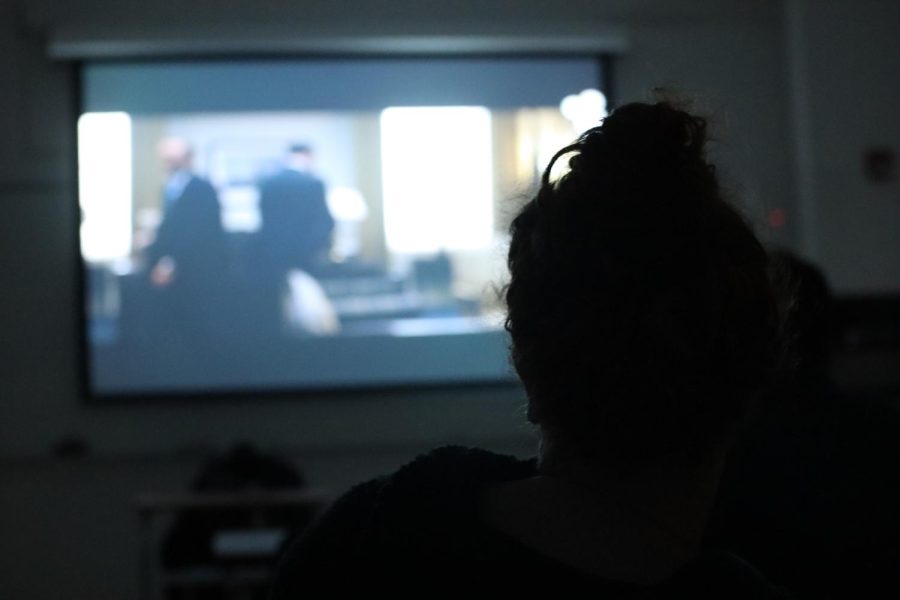Students navigate political unity and lead with integrity
UNCA Democrats and College Republicans at UNC Asheville, united to hosted a movie night on April 11 to watch part of the series “House of Cards.”
April 19, 2022
Students show no fear when it comes to getting involved in politics, especially during an election year.
Associate Professor and Advisor for the Political Science Club, Ashley Morenguez, accredited students’ active engagement in the community to students’ collaborative efforts.
“You guys are the ones who I think promote engagement most effectively I think,” Morenguez said.
According to data collected by the political science department on the 2020 presidential elections, 94.2% of eligible voters enrolled at UNC Asheville were registered to vote, and 81.2% of those registered voted in the election.
Students are highly successful in civic efforts and emphasize the importance of being informed of decision-makers’ responses to their constituents. Based on UNCA’s record of voter turnout, the UNCA community refuses to allow partisan polarization to discourage them from showing up at the polls.
In Sophie Ross’ time as president of the College Republicans club, she said she hasn’t seen anything out of the ordinary in regards to factors influencing students’ political decisions. Individuals mostly approach club meetings and attend events from the perspective of an ordinary college student looking to be a better citizen.
“We definitely try to (break stereotypes), but I don’t think so,” Ross said.
The senior said students seek out friendships with like-minded individuals and outreach opportunities rather than using student organizations as an avenue for systemic change.
Groups including the College Democrat and Republican clubs serve the Asheville community through bipartisan speakers and events, inviting peers to brush up on their voting rights and public policy in Western North Carolina.
Morenguez said nonpartisan events serve the purpose to inform students of political agendas and tools to overcome barriers to participating in local elections.
“Our ballots are primarily partisan races so I think it’s a really educational opportunity. I also think it’s a great opportunity for faculty and staff to actually ask those questions directly to the people who are in power,” she said. “It’s really valuable for the political culture on our campus.”
Associate professor and researcher Giovanny Plietes-Hernandez considers himself a scholar of Latino representation and the politics of marginalization.
“If 2018 and 2020 were any indication where we saw lots of people come to turnout maybe that can be turned into more turnout and this could be a changing trend,” Hernandez said.
Voter turnout for the midterms typically drops in number compared to participants in presidential elections. In 2014, only 36.4% of eligible voters turned out at the ballot, and according to PBS, was the lowest since World War 2. Unlike the 2014 midterms, more voters are getting involved in local and national elections.
No doubt students in the political science department hold a stronger position on work in the community but also strive for diversity on the ballots.
“I think there’s a lot of literature connecting descriptive representation to the extent to which individuals in key positions in government or outside of it, whether those individuals mirror the people,” Hernandez said. “There’s plenty of work at least that I’ve been exposed to that shows how having descriptive representation can influence perceptions of government trust, self-efficacy and in some cases, even influencing whether individuals participate in politics.”
Outside of political science, Hernandez taught students’ across disciplines and said they’re aware of the obstacles they face at the ballots, starting with the foundations of our government.
“I distinctly remember in that class having two students that were Hispanic or Latinx identifying that came up to me at the beginning and also the end of class about how important it was to see someone like them as a professor.”


















